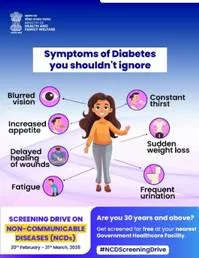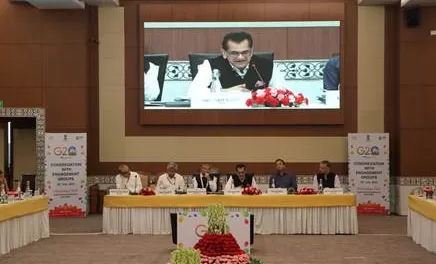
19 September 2023
The inaugural report from the World Health Organization (WHO) unveils the profound global impact of high blood pressure, along with recommendations to combat this insidious threat. The report reveals that roughly 4 out of 5 individuals suffering from hypertension are not receiving adequate treatment. However, if countries can expand their coverage, an estimated 76 million deaths could be prevented between 2023 and 2050.
Hypertension afflicts 1 in 3 adults worldwide, leading to severe health issues such as stroke, heart attack, heart failure, kidney damage, and more.
Between 1990 and 2019, the number of people with hypertension (blood pressure of 140/90 mmHg or higher, or taking medication for hypertension) doubled from 650 million to 1.3 billion. Currently, nearly half of global hypertension cases go undiagnosed. Over three-quarters of adults with hypertension reside in low- and middle-income countries.
While advancing age and genetics can heighten the risk of high blood pressure, controllable factors like excessive salt intake, insufficient physical activity, and excessive alcohol consumption can also contribute.
Embracing lifestyle adjustments such as adopting a healthier diet, quitting tobacco, and increasing physical activity can effectively lower blood pressure. Some individuals may require medication to effectively manage hypertension and avert associated complications.
Prioritizing prevention, early detection, and efficient management of hypertension stands as one of the most economically viable healthcare interventions. The economic benefits of enhanced hypertension treatment programs outweigh the costs by approximately 18 to 1.
Dr. Tedros Adhanom Ghebreyesus, WHO Director-General, emphasizes, “Hypertension can be controlled effectively with simple, low-cost medication regimens, and yet only about one in five people with hypertension have controlled it. Hypertension control programs remain neglected, under-prioritized and vastly underfunded. Strengthening hypertension control must be part of every country’s journey towards universal health coverage, based on well-functioning, equitable and resilient health systems, built on a foundation of primary health care.”
This report is unveiled during the 78th Session of the United Nations General Assembly, which addresses progress toward the Sustainable Development Goals, including health objectives related to pandemic preparedness, tuberculosis eradication, and achieving Universal Health Coverage. Enhanced prevention and management of hypertension are crucial for advancement in all of these areas.
Ramping up effective hypertension treatment to levels seen in high-performing nations could avert 76 million deaths, 120 million strokes, 79 million heart attacks, and 17 million cases of heart failure by 2050.
Michael R. Bloomberg, WHO Global Ambassador for Noncommunicable Diseases and Injuries, emphasizes, “Most heart attacks and strokes in the world today can be prevented with affordable, safe, accessible medicines and other interventions, such as sodium reduction. Treating hypertension through primary health care will save lives, while also saving billions of dollars a year.”
Hypertension can be effectively managed with safe, widely available, and low-cost generic medications using programs like HEARTS. WHO’s HEARTS technical package for cardiovascular disease management in primary health care and the Guideline for the pharmacological treatment of hypertension in adults offer proven and practical steps for delivering effective hypertension care in primary health care settings.
Countries of all income levels can achieve effective community- and nation-wide blood pressure management. Over 40 low- and middle-income countries, including Bangladesh, Cuba, India, and Sri Lanka, have bolstered their hypertension care with the HEARTS package, enrolling over 17 million people in treatment programs. Canada and South Korea have both implemented comprehensive national hypertension treatment programs, surpassing the 50% mark for blood pressure control in adults with hypertension. Sustained, systematic national hypertension control programs can yield success, resulting in fewer strokes and heart attacks, and longer, healthier lives.
The report underscores the importance of implementing WHO-recommended effective hypertension care to save lives, which includes the following five components:
- Protocol: Streamlined treatment protocols with specific steps for managing uncontrolled blood pressure can enhance care and adherence.
- Medication and Equipment Supply: Access to affordable medication is crucial for effective hypertension treatment; prices for essential anti-hypertensive medicines currently vary significantly between countries.
- Team-Based Care: Collaborative efforts in adjusting and intensifying blood pressure medication regimens, following doctor orders and protocols, lead to improved patient outcomes.
- Patient-Centered Services: Offering easy-to-follow medication regimens, free medications, nearby follow-up visits, and accessible blood pressure monitoring reduces barriers to care.
- Information Systems: User-friendly information systems facilitate rapid recording of vital patient data, reducing healthcare worker data entry burden while supporting rapid scale-up and maintaining or enhancing the quality of care.
Dr. Tom Frieden, President & CEO of Resolve to Save Lives, underscores, “Every hour, more than 1,000 people die from strokes and heart attacks. Most of these deaths are caused by high blood pressure, and most could have been prevented. Good hypertension care is affordable, within reach, and strengthens primary health care. The challenge now is to go from ‘within reach’ to ‘reached.’ This will require the commitment of governments around the world.”
Learn more about the global impact of high blood pressure and the HEARTS package to control it here.
Read the full report here.












